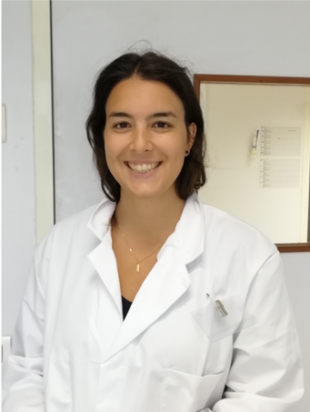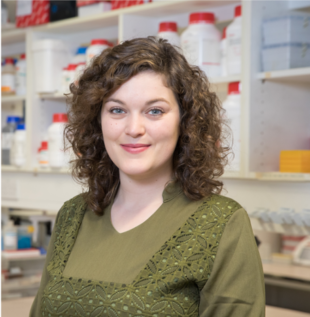Microbiology Society prizes: MIM and EMVZ
Posted on April 9, 2020 by Microbiology Society
Each year, the Microbiology Society’s journals sponsor a number of prizes at various conferences around the world. Here, we speak with some of the winners of prizes presented at the 9th European Meeting on Viral Zoonoses (EMVZ) and Microbes in Medicine: a century of microbiology at Trinity College Dublin (MIM).
Winner of the Journal of General Virology poster presentation prize at EMVZ: Anne de Verneuil

Title of talk: ‘Modelling Eastern Equine Encephalitis Virus (EEEV) infection using neuronal/glial cells derived from human neural progenitors.’ I study a virus called EEEV, which is transmitted to people by mosquito bite. This virus can cause very severe headaches. We are trying to understand how this virus lives, behaves and uses our body to multiply, in order to find a way to stop it.
What inspired you to become a scientist? I am inspired by the hope of contributing to the cure of diseases and to understand the functional mechanism of the body. I like putting things together to figure out how they work, especially how our immune system resists against pathogens. I have always really enjoyed science, so I have never really stopped!
What are you currently working on and what area of your research excites you the most? There is currently no prophylactic or therapeutic treatment for many arboviruses including alphaviruses and flaviviruses. I am working with an in vitro model, well adapted to study the neuropathogenesis in the human brain and to perform antiviral research. I am also excited to look after molecular mechanisms of candidate molecules.
What would you be doing in your career if you weren’t a scientist? Ancient Egypt and its mythology have always fascinated me. I used to take after-school lessons to be able to read hieroglyphs. Therefore, if it weren’t for biology, I would have still become a scientist, but another kind of scientist: an archaeologist.
Winner of the Journal of Medical Microbiology poster presentation prize at Microbes in Medicine: Aisling Towell

Title of poster: ‘Identification of factors promoting Staphylococcus aureus colonisation of atopic dermatitis skin.’ People with eczema have bacteria called Staphylococcus aureus living on their skin. The bacteria fight with the body’s defence system and leads to painful, itchy skin. My research involves discovering which human proteins S. aureus proteins stick to. We hope to use this information to stop the bacteria sticking to the skin.
What inspired you to become a scientist? My family – particularly my brother – have a keen interest in science, so I spent my childhood hearing scientific discussions. Then in secondary school, my biology teacher was fantastic. It was during my time in her class that I became interested in human disease, and the role pathogens have to play.
What are you currently working on and what area of your research excites you the most? I’m currently investigating S. aureus factors that contribute to colonisation of both the healthy host, and atopic dermatitis patients. I’m also exploring methods to prevent biofilm formation by S. aureus. I definitely find it exciting when my research links the bacterial and host factors to fully describe pathogenic diseases.
What would you be doing in your career if you weren’t a scientist? I love animals so I think if I hadn’t gone down the path of microbiology, I would have gone into something related to the conservation of endangered species.
Winner of the Access Microbiology most promising science oral presentation prize at MIM: Vanessa Las Heras

Title of talk: ‘The role of diet in host susceptibility to Listeria monocytogenes infection.’ The food you consume changes the environment inside your gastrointestinal tract, and this can determine if you are healthy or sick. One of the things that make you sick are pathogenic bacteria, like Listeria. My work shows that if you have a bad diet with a lot of fat, you increase your chances of being sick with Listeria.
What inspired you to be a scientist? My grandfather was always very curious, and that curiosity was quite contagious. I guess all I wanted was to keep having my questions answered.
What are you currently working on and what area of your research excites you the most? I am currently working in host-microbe interaction mechanisms, specifically the impact of intestinal environment modulation in susceptibility to disease with foodborne pathogens. I think it is fascinating to observe the fine balance required for homeostasis in an environment as complex as our gastrointestinal tract.
What would you be doing in your career if you weren’t a scientist? A chef, or a dog-walker.

